
Nouns refer to objects or concepts—usually a person, place, or thing. Virtually any conversation you’ll have in English will involve you or the other party talking about nouns:
- “The zoo was busy yesterday.”
- “Henry left the meeting early.”
- “This article is all about nouns.”
Thus, learning the most common nouns in English is necessary if you hope to hold a conversation for very long! In this article, I’ll go over the most vital 100 nouns in English you need to know. These are words you’ll hear or read often, and that you’ll find yourself needing to use on a regular basis.
But before I start the list of 100 nouns in English, it’s important that you know about the types of nouns in English and how to use them. Below you’ll find information to help you learn about English nouns.

Table of Contents
- Types of Nouns in English & How to Use Them
- 100+ Most Common Nouns in English
- Conclusion: Master Nouns in English & Much More with EnglishClass101!
1. Types of Nouns in English & How to Use Them

1- Types of Nouns in English Grammar
There are three main types of nouns in English, in terms of class: Common vs. Proper, Concrete vs. Abstract, and Countable vs. Uncountable.After these classifiers, there are also Collective, Mass, and Partitive nouns.
1. Common and Proper Nouns
A common noun is a noun that refers to a person, place, or thing, without using a proper name. It’s simply whatever the thing is called, in a general sense.A proper noun, on the other hand, is the name of a specific entity, such as a nation, building, or person. In English, all proper nouns are capitalized; words like “Monday” should never be written as “monday”. Proper nouns are also individual examples of common nouns, but not all instances of common nouns have associated proper nouns. For example, a horse (common noun) may be named “Mr. Ed” (proper noun), but not all horses have names. Below are some examples of this:
| Common Nouns | Proper Nouns |
| Cat | Fluffy |
| Building | Empire State Building |
| Man | Mr. Jerry |
| Park | Hanging Rock State Park |
| Language | English |
2. Concrete and Abstract Nouns
Concrete nouns are nouns that are tangible; you can see them, smell them, hear them, taste them, and physically touch or feel them.English abstract nouns are nouns that you can’t experience using your five senses, but are still real.
Below are some examples.
| Concrete Nouns | Abstract Nouns |
| Bacon (You can eat and taste bacon.) | Idea (Ideas are real, but aren’t tangible.) |
| River (You can see, hear, and feel a river.) | Loyalty (Loyalty is a real concept, but isn’t tangible.) |
| Candle (You can see, touch, and smell a candle.) | Intelligence (Intelligence is real, but not tangible.) |
| Pillow (You can see and touch a pillow.) | Hope (Hope is real, but can’t be felt with the five senses.) |
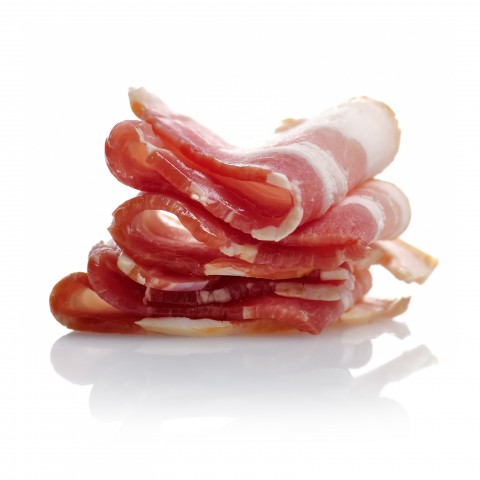
3. Countable and Uncountable Nouns
Countable nouns are nouns that you can count using a definite number.Uncountable nouns are those that can’t be counted using a definite number.
Below are some examples.
| Countable Nouns | Uncountable Nouns |
| Book | Wisdom |
| Elephant | Joy |
| Rock | Nostalgia |
| Eraser | Paperwork |
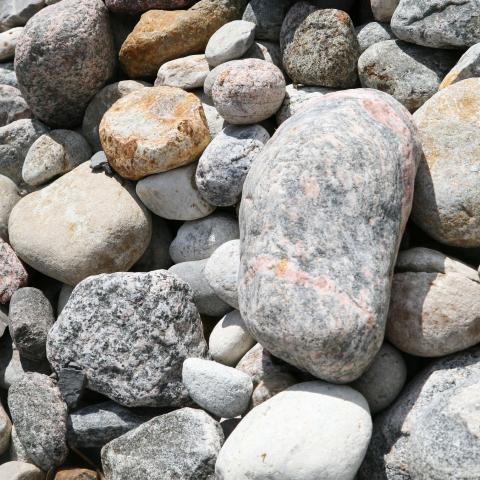
Note that you can use countable nouns in both singular and plural forms. For example, you can say “a book” or “three books,” and be grammatically correct.
However, uncountable nouns can only be used in singular form, typically without an article; it would sound funny to say “a nostalgia” or “six nostalgias.” Rather, you would say something along the lines of “Finding my Tamagotchi gave me nostalgia.”
4. Collective, Mass & Partitive Nouns
This is where things can get extra tricky with nouns in English grammar, so don’t worry if you need to go over this section a few times!Collective nouns refers to a collection of several things, usually people or animals. It is a single word that encompasses many of the same things.
Mass nouns refer to a noun that can’t be “counted,” but is still measurable.
Partitive nouns refers to a part of something, usually part of a mass noun. Use of this noun usually involves the following sentence structure: ___ [partitive noun] of ___ [mass noun].
For your convenience, here are some lists for each type of noun, with example sentences so you can see how these nouns are used in English grammar.
| Collective | Mass | Partitive |
| Crowd “He pushed through the crowd.” | Flour “Bert had to pick up more flour at the store.” | Slice “He ate another slice of pizza.” |
| Pack “A wolf pack trekked through the snow.” | Dust “The DVD collection began gathering dust.” | Cut “Morty wanted the best cut of meat.” |
| Herd “He corralled the herd.” | Pepper “The sandwich needed more pepper.” | Piece “She ate the last piece of cake.” |
| Flock “The birds flew together in a flock.” | Juice “She poured some juice for her daughter.” | Spoonful “A spoonful of honey is very sweet.” |
2- How to Form Plural Nouns

So, how do you take a singular noun and make it plural?
It depends on the word, though you almost always add an “-s” to the end. There are instances, however, where you add “-es” or “-ies.”
Here are some examples of these rules, but keep in mind that there are exceptions to these rules more often than not.
1. Add -s
The majority of nouns in English simply require you to add an “-s” in order to make them plural. In particular, nouns that end with -th, -ph, -o, -f, -fe, and -on, almost always become plural by adding an “-s,” though this pluralization isn’t limited only to these endings.Here are some examples:
- Cat > Cats
- Eye > Eyes
- Mountain > Mountains
- Risk > Risks
2. Add -es
There are some nouns which require you to add an “-es” in order to make them plural.Oftentimes, these are nouns that end in a double “s,” as we don’t put three s’s consecutively in English.
There are other instances where “-es” is used, such as when a noun ends in -sh, -ch, -s, -x, or -z. Further, there are instances where nouns ending in “-o” require -es instead of -s (though the rules for this are flimsy).
Also, “-es” is required for nouns that end in “-is.”
Here are some examples of each rule above:
- Dress > Dresses
- Glass > Glasses
- Eyelash > Eyelashes
- Tomato > Tomatoes
- Basis > Bases
3. Add -ies
The rule for “-ies” is simple. For any singular noun that ends in the letter “y,” remove the “y” and replace it with “-ies.”- Library > Libraries
- Party > Parties
- Country > Countries
- Bunny > Bunnies
The only exception to this rule is when the “-y” is preceded by a vowel, in which case only an “-s” is needed (e.g. way > ways).
4. Add -i
Nouns that end in “-us” can be made plural by replacing the “-us” with “-i” (e.g. fungus > fungi).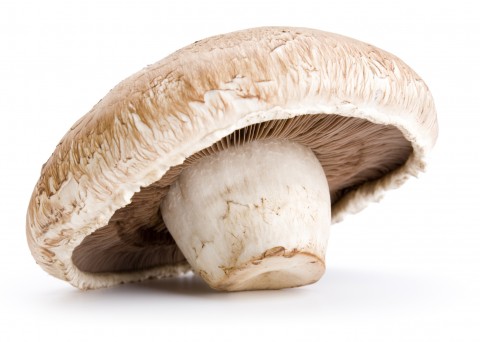
There are also some words that are both singular and plural. Some examples include “deer,” “sheep,” “pants,” and “scissors.”
3- What’s the Difference Between an English Noun and Pronoun?
Differentiating between an English noun and pronoun can be difficult, especially for those new to the English language.Technically speaking, a pronoun is a type of noun. Pronouns are nouns that are used for the sole purpose of identifying a person, animal, or thing (rather than simply naming it). Common pronouns include “he,” “she,” and “it”; these indicate who or what is being referred to, without using a proper noun (such as a name).
Distinguishing between an English noun and pronoun is something that you’ll become better at with lots of practice and experience!
2. 100+ Most Common Nouns in English

Now that you have a better idea about how nouns are used, you should find this nouns list a lot more useful. Let’s go over the 100+ most common nouns in English!
1- Appliances
We live in a world filled with appliances designed to make our lives easier. Knowing the names of common appliances in English will be essential when you visit, or relocate to, an English-speaking country. Here’s an overview of the most common and practical appliances in English.| Word | Meaning | Usage in Sentence | Additional Notes |
| TV | “TV” is short for “television,” which is found in nearly every American household. These words can be used interchangeably. | The TV broke, so Sasha couldn’t watch the season finale of her favorite show. | |
| Fridge | An appliance used to keep food cold and fresh, usually vegetables, meats, and other foods/beverages that are best kept cold. | Alaina put the soda can in the fridge so it would be cold when she drank it later. | “Fridge” and “freezer” are often used together in sentences, due to their similar uses. |
| Freezer | An appliance used to keep food frozen. This is often done to ensure that the food remains edible for long periods of time. | Mark took the leftover chili out of the freezer to thaw for dinner that night. | Oftentimes, people have an appliance that serves as both a fridge and a freezer. |
| Air Conditioner | An appliance used to keep a home (or room) comfortably cool, especially during the warmer months. Also called an “AC.” | Sweating, Henry got up to turn on the air conditioner. | |
| Heater | An appliance used to keep a home (or room) warm, especially during the cooler months. | Jenny turned up the heater as she watched the snow fall outside. | |
| Fan | An appliance that keeps a home cool by keeping the air circulated; however, this doesn’t keep a home at a certain temperature, like air conditioners do. | Gretta stood in front of the fan to cool down after her run. | |
| Washer | An appliance used to wash clothing. | Sue put the dirty clothes in the washer this morning. | |
| Dryer | An appliance used to dry clothing after it’s been washed. | Later, her husband put them in the dryer. | “Washer” and “dryer” is another pair of words that tends to be used together. |
| Microwave | A “microwave” (also called a “microwave oven”), is a kitchen appliance used to heat food as well as pop popcorn or melt butter. | Beatrice heated the leftover food in the microwave to have for lunch. | |
| Hairdryer | A “hairdryer” is a handheld appliance used to dry hair after bathing or otherwise getting one’s hair wet. | Mel just bought a new hairdryer. | |
| Dishwasher | A “dishwasher” is an appliance that’s used to clean dishes and silverware. | After dinner, she collected the dishes and put them in the dishwasher. | Not to be confused with just a “washer,” which washes clothes. |
| Coffee maker | A “coffee maker” is an appliance that makes coffee after water and coffee grounds have been put in. Coffee makers come in various forms, but they all do basically the same thing. | Al became grouchy after his coffee maker broke this morning. |
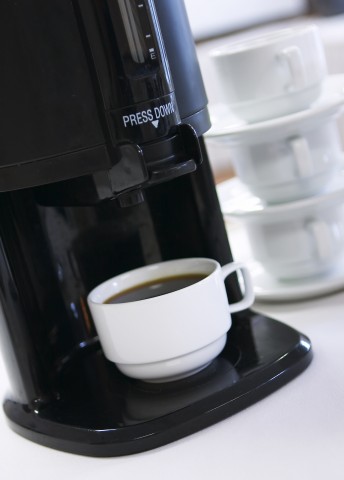
2- Technology
The world is continually evolving toward an internet- and technology-based existence. This makes it essential to know and understand the most basic technology nouns! Below is a list of the words you’ll most likely need to know, and will be using, while in an English-speaking country.| Word | Meaning | Usage in Sentence | Additional Notes |
| Computer | A “computer” is a device that people use for many purposes, namely to go on the internet or perform other digital tasks. | Alex needed a new computer for work. | |
| Keyboard | A “keyboard” is a device comprising of several letter, number, and action keys that people use for typing on a computer. | Ellen spilled coffee on her keyboard, so it stopped working. | |
| Mouse | A “mouse” is a device that people use to move the cursor on the screen of a computer or laptop. | Carlos’s hand hurt after using the mouse all day. | Mouse here is not to be confused with the animal mouse! |
| Laptop | A “laptop” is similar to a computer, though it tends to be smaller and is portable. Its name refers to the fact that a person can set it on their lap as they work on it. | Lucy was glad that she could bring her laptop on the plane. | |
| Tablet | A “tablet” is a device smaller than a laptop, and usually doesn’t fold like a laptop does when not in use. Tablets normally have good internet functionality and are often used for gaming or reading. | Pierre purchased the new book to read on his tablet. | |
| Cellphone | A “cellphone” is a device that’s relatively small (usually able to fit in someone’s pocket) and is used wirelessly to call or text message others as well as go online (if it’s a smartphone). | Ollie dropped his cellphone on the ground and the screen shattered. | |
| Headphones | “Headphones” are a device that one puts on their head (similar to ear muffs or a headband) to listen to music via another device (like a laptop). | Victor wanted to buy new headphones, but didn’t have enough money. | You may hear someone refer to “earphones” or “earbuds.” These are devices that are used for the same purpose, but are smaller and the part with the speaker is put inside the ear, not over it. |
| Charger | A “charger” is a device with a wire which is plugged into an outlet on one end, and a device on the other, to recharge the battery. | “Can I borrow your charger?” asked Kayla. | |
| Battery | A “battery” gives certain devices the energy they need to run and function. | The battery was running low, so Amber hurried to charge it. | “Charger” and “battery” are often used together in a sentence, as “chargers” are used to charge “batteries.” |
| Wi-Fi | “Wi-Fi” allows you to have internet access while away from home. | Molly was disappointed that the store didn’t have Wi-Fi. | |
| Internet | When you go online, you are using the “Internet.” | Riley and her boyfriend didn’t have internet the first week in their new apartment. | |
| Service | People often use the word “service” to mean either a service provider (usually for the internet), or the service itself. | “I can’t believe I don’t get service here!” said Ray at his grandparents’ house. | “Wi-Fi,” “internet,” and “service” are often used together, as they all relate to each other. |
| Website | A “website” is a specific place on the internet, defined by a web address. | Bob had always dreamed of running his own website. | |
| Picture | A “picture” is an image, and in this case refers to one you would find online. | Ken liked Elle’s picture on Facebook. | This can also be called a “photo” or a “pic.” |
| File | A digital “file” is similar to a real-life file. It’s a place on a computer or other device where you can store information or programs. | Ingrid saved the file before leaving work. | |
| Account | An “account” is something that allows a person to access something online or on a device. | She couldn’t believe her Twitter account was hacked. | “Account,” “Username,” “Password,” and “Login” are often used together, as they’re closely associated. For example, your login is composed of your username and password, which are used to access your account. |
| Username | A “username” refers to what a device or website will know you as, and is almost always required alongside a password for access to an account. | Manny wanted his username to be different than his real name. | |
| Password | A “password” is a word, phrase, or series of numbers+letters that only you (or a select group of people) know, and is used to gain access to an account or information. | Sandra forgot her password again. | |
| Login | A “login” usually refers to login information (usually a username + password). | Hans would never let anyone know his login information. |
3- Transportation
From the moment you begin your journey, transportation is one of the most urgent factors you’ll have to consider. Throughout the United States, you’ll find many different modes of travel and transportation; in the list below, you’ll find the most common nouns in English that have to do with transportation.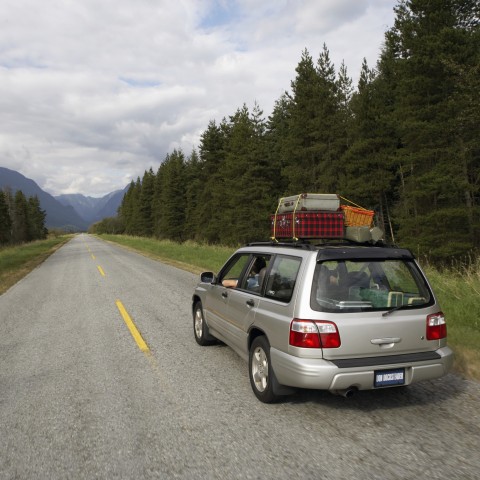
| Word | Meaning | Usage in Sentence | Additional Notes |
| Airplane | An “airplane” (sometimes just called a “plane”) is a means of transportation by air. | Omar was relieved when he found his airplane ticket. | |
| Airport | The “airport” is where planes land and take off from, and where people go to board a plane. | “What time should I pick you up at the airport?” asked Carmen. | |
| Train | A “train,” commonly referred to as a “locomotive,” is a fast mode of transportation by railway. | Wayne had always wanted to ride a train around the countryside. | |
| Train station | The “train station” is where trains go and leave from, and where people board the trains. | He couldn’t believe how crowded the train station was. | |
| Subway | A “subway” is an underground train system. | Mya almost missed the subway train. | |
| Bus | A “bus” is a common mode of public transportation; it’s a large, long vehicle that carries many people to various locations. | Aunna hated riding the bus to work. | |
| Bus stop | The “bus stop” is where buses go to and take off from, and where people board the bus. | There are few things more miserable than waiting at a bus stop in the cold. | |
| Taxi | A “taxi” is another form of public transportation, consisting of a normal-sized car and a driver, who will take you where you need to go. | Kim waited and waited, but couldn’t get a taxi to stop for her. | Taxis are a common mode of transportation in the United States, and you’ll find access to traditional taxi services as well as those by companies like Uber and Lyft. |
| Bike / Bicycle | A “bike” (or “bicycle”), is a means of transportation with two wheels that moves as you pedal. | To get more exercise, Gretchen started riding her bicycle everywhere. | |
| Traffic light | A “traffic light” (also called a “traffic signal”) is a device over busy intersections that indicate whether to stop your vehicle or continue going through, based on what color the light is. | Gordon enjoyed looking at the scenery while stopped at the traffic light. | |
| Intersection | An “intersection” is a place on a street where vehicles can be coming from multiple directions. | Risa felt nervous when approaching the intersection. | |
| Road | A “road” is a place where vehicles drive or people walk, and is relatively small and usually not busy. | Taylor thought it was peaceful walking down the dirt road in the evening. | |
| Street | A “street” is usually larger than a road, and busier. It’s usually meant only for vehicles/bikes. | Nikki looked both ways before crossing the street. | |
| Area | An “area” is a general space or place. | “I live in the area surrounding the library,” he told her. |
4- Restaurant
I don’t know about you, but eating out at restaurants is my favorite part of visiting new places. Food and dining atmospheres are both comforting and adventurous at the same time! To ensure that you have the best dining experience possible, be sure to study these relevant English nouns for beginners!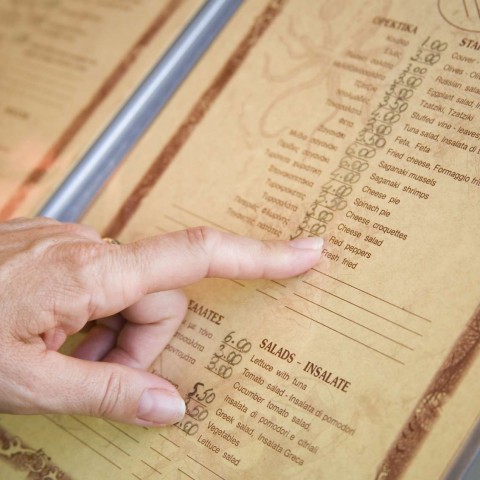
| Word | Meaning | Usage in Sentence | Additional Notes |
| Table | A “table” is an elevated platform that people sit around to eat. | “Which table should we sit at?” asked Barnie. | |
| Menu | A “menu” is a selection of what’s available to eat and drink at a restaurant, and how much it costs. | “Wow, there’s so much on the menu to choose from,” said Lisa. | Depending on the restaurant, the menu can be on a large board above where you order, on a small paper or pamphlet on the table, or both. |
| Server | A “server” is the person who brings you your food and beverages, and usually the bill at the end of your meal. | The server arrived with their food. | |
| Waiter | A “waiter” is a male server. | She asked the waiter for a refill of her drink. | |
| Waitress | A “waitress” is a female server. | The waitress asked everyone how the food was. | |
| Bill | The “bill” is a piece of paper with a final statement of how much your meal costs. | Vince looked at the bill and couldn’t believe how much the meal cost. | This is not to be confused with a dollar bill, or with the name Bill! |
| Fork | A “fork” is an eating utensil with three or four prongs, used to pick up food so you can eat it. | After a terrible day, Quin couldn’t believe the restaurant staff would forget to give him a fork. | |
| Knife | A “knife” is an eating utensil used to help cut through bigger pieces of food to make them easier to eat. | Once the waiter had given him a fork, Quin realized the knife was dirty. | |
| Spoon | A “spoon” is an eating utensil with a curved end that holds liquid/semi-solid foods like soup or pudding. | Quin left the restaurant early after he dropped his spoon on the floor. | |
| Chopsticks | “Chopsticks” consist of two separate sticks that are used to pinch or pick up food to eat. These are commonly found in restaurants that serve Asian-style food. | The next day, he went to a Chinese restaurant and learned how to use chopsticks. | |
| Plate | A “plate” is a mostly flat dish that is used to serve food on. | “I forgot how big the plates here are,” Elsa said. | |
| Bowl | A “bowl” is a rounded dish typically used to hold liquid or semi-solid foods like soup or pudding. | “You really ate the whole bowl of chili!” she exclaimed. | |
| Glass | A “glass” is a container used to hold beverages. | “Can we get one more glass over here?” Hank asked the waitress. | |
| Water | “Water” is the most common beverage to drink with a meal, and most restaurants give you free water with your meal. | “I’ll just have water, please,” Wanda said. | |
| Tea | “Tea” is a beverage made with hot water and herbs. It can also be served cold over ice, known as iced-tea. | Anya enjoyed the fragrance of the tea. | |
| Beer | “Beer” is an alcoholic beverage made from fermented cereal grains. | Andrew finished off his second beer quickly. | |
| Wine | “Wine” is an alcoholic beverage made using fermented grapes. | “Which wine do you recommend?” she asked her date. | |
| Vegetables | “Vegetables” are a plant-based component of many meals, especially in lunches and dinners. | Watching her diet, Hilary ordered the omelet that had lots of vegetables. | |
| Beef | “Beef” is meat that comes from a bull or cow, and can come in many forms – two of the most popular are burgers and steaks. | Linus had a craving for beef, so he ordered a steak with potatoes. | |
| Pork | “Pork” is meat that comes from a pig, and can also come in many forms – pork chops and hot dogs are just two examples. | “Can I have the rice bowl with pork?” he asked. | |
| Chicken | “Chicken” refers to the meat from a chicken, and is one of the most-eaten meats in the United States. | Tina ordered the chicken salad. | |
| Fish | “Fish” can refer to any type of edible fish – some of the most common are salmon, tilapia, and tuna. | “What fish dish do you recommend?” she asked the waiter. | |
| Tofu | “Tofu” is a soy-based substitute for meat, and is a common option for vegetarians/vegans. | “Can I have this meal with tofu instead of chicken?” Kit asked. |
5- School Essentials
Whether you’re currently a student or not, school and education are common topics of conversation in the United States. You should be able to navigate through such a conversation easily, as long as you know these everyday English nouns.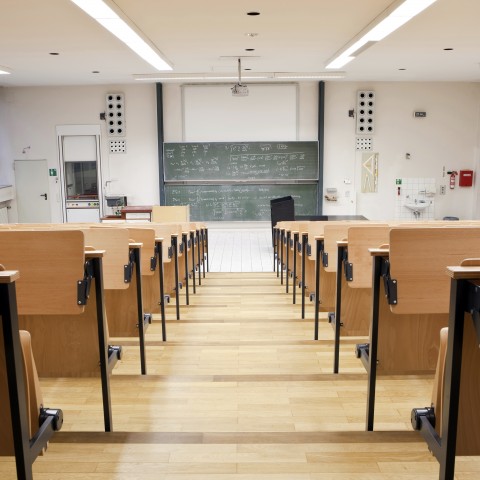
| Word | Meaning | Usage in Sentence | Additional Notes |
| Elementary school | In the United States, “elementary school” usually refers to grades 1-5. | Grayson’s daughter is seven years old, and is in elementary school. | |
| Middle school | “Middle school” in the United States usually refers to grades 6-8. | His son, however, is in middle school. | |
| High school | In the United States, “high school” usually refers to grades 9-12. | “I can’t wait to graduate high school!” Helen said. | |
| College | “College” refers to schooling after high school, usually in pursuit of a specific career. | Will hadn’t yet decided on which college to go to. | |
| University | A “university” is similar to a college, though universities tend to be larger, have more options, and provide more resources to students. | Zoey wished that her son would attend the university right after high school. | |
| Classroom | A “classroom” is a place, usually within a school building, where classes and lessons take place. | The classroom was closed for the day due to an accident. | |
| Classmate | A “classmate” is someone with whom you go to class with/is taking the same class as you. | Peter didn’t get along with most of his classmates. | |
| Teacher | A “teacher” is one who teaches at a school. | Rhonda asked her son which teacher was his favorite this year. | |
| Professor | A “professor” is one who teaches, usually at a college or university. | Olive had to ask her professor for another chance to pass the exam. | |
| Student | A “student” is one who attends school, college, or university, or who is in the process of actively learning in general. | Alice is a student of Biology at her college. | |
| Major | A “major,” in college, is a certain path of learning (e.g. if you major in something, it means that you are studying that more than anything, usually in order to get a career in that area). | Jared had a hard time picking a major, but decided on Engineering. | Major here is not to be confused with the adjective major (meaning “big” or “important”), or the military term Major. |
| Degree | A “degree” is a type of certificate that proves a person has graduated successfully from high school or college. | Claire only had two more weeks of school until she could get her degree. | Degree here is not to be confused with degrees (related to temperature), or degree (meaning “extent”). |
| Homework | “Homework” is schoolwork that is taken home to work on, and turned in to a teacher on a specified date. | Ian always asked his big brother for help on his math homework. | |
| Project | A “project” in school is usually an assignment that a student (or group of students) is given a specified amount of time to finish. This can be an essay, a powerpoint, or any other school-related assignment. | Terry was almost finished with his school project when his little sister came in and destroyed his work. | |
| Exam | An “exam” is a type of test, usually long and covering a wide range of topics, that a class takes at the end of the year or semester. | He was up all night studying for the exam. | |
| Break | A “break” is a period of time when school is not in session. There’s usually a break each quarter, with summer break being the longest. | Antoine couldn’t be more excited for summer break! | Break here refers to a period of rest or time off, and is not to be confused with the verb break! |
6- Occupation
In the United States, people can be pretty obsessed with their jobs. You’re bound to have people ask you all the time what you do for a living, how you like doing it, and how you got into that field of work. Below is a small sample of possible job titles you may hear (or use to describe your own job).(Learning about nouns in English because you’re looking for a U.S. job? Be sure to check out our article on how to find a job in the United States!)

| Word | Meaning | Usage in Sentence | Additional Notes |
| Doctor | A “doctor” is a person who is qualified to prescribe treatment/medication and diagnose someone with an illness/disorder. | Louis went to school to become a doctor. | |
| Lawyer | A “lawyer” is someone well-versed in the law and who practices the law in one of many positions related to it. | Joel needed a lawyer before he would speak to the authorities. | |
| Nurse | A “nurse” is someone with medical knowledge, who is often charged with caring for sick patients. | The nurse changed the patient’s bedding each day. | Nurse here is not to be confused with the verb “nurse.” As a verb, “nurse” can mean to take care of and aid in healing. It can also refer to a mother breastfeeding her baby. |
| Manager | A “manager” is someone who manages a business, company, store, etc., and its staff. | The store manager was very nice and offered them a discount after the inconvenience. | |
| Chef | A “chef” is one who prepares and cooks food, usually in a restaurant. | Leila enjoyed food, so she wanted to become a chef. | |
| Businessman | A “businessman” (or “businesswoman”) is one who works at an executive-level position within a company, or who is well-versed in financial knowledge regarding that business. | Anna thought the businessman looked too serious. | |
| Police officer | A “police officer” is one who enforces the law, and has the authority to put someone under arrest. | Tim’s father was a police officer. | Police officers can also be called “policemen” (for males), “policewomen” (for females), or cops. |
| Firefighter | A “firefighter” is one who is involved in putting out fires. | Cara wanted to be a firefighter ever since one of them saved her life as a child. | |
| Engineer | An “engineer” is one who has a good knowledge of mechanics, and is typically involved in creating or fixing things that involve mechanics. | Wendy wanted to be an engineer like her father. |
7- Family Members
Talking about your family with someone is a great way to develop a closer bond, and maybe even a friendship! Here are the most common nouns for family members in the United States.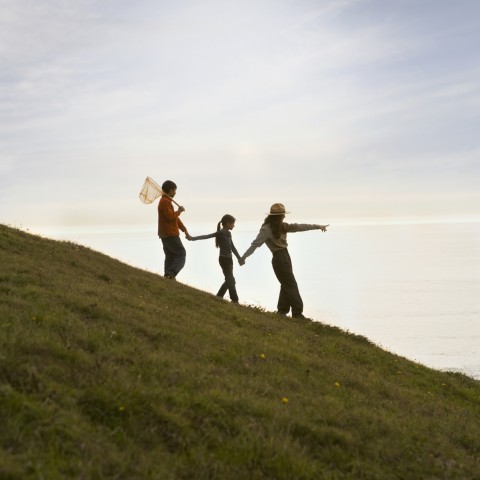
| Word | Meaning | Usage in Sentence |
| Parents | The “parents” are those who conceived and raised (or simply raised, in the case of adoption) a child. | Trisha didn’t get along with her parents as a teenager. |
| Dad | A “dad” (also called a “father”) is the male parent. | Arthur’s dad taught him how to play chess. |
| Mom | A “mom” (also called a “mother”) is the female parent. | Violet enjoyed spending time with her mother. |
| Siblings | “Siblings” are children with the same parents. | Lily needed some time away from her four siblings. |
| Brother | A “brother” is a male sibling. | Nel and her brother enjoyed playing together as children. |
| Sister | A “sister” is a female sibling. | Cassie’s little sister wore yellow a lot. |
| Uncle | An “uncle” is the brother of one’s mother or father. | Tom fixed the car with his uncle. |
| Aunt | An “aunt” is the sister of one’s mother or father. | Liz liked going to the store with her aunt. |
| Nephew | A “nephew” is the son of one’s sibling. | Martin’s sister had a son named Matthew, making the child his nephew. |
| Niece | A “niece” if the daughter of one’s sibling. | A couple of years later, Martin’s brother had a daughter named Melody, making her his niece. |
| Cousin | Two people are “cousins” if each of them was born to a different sibling in the same family. | Matthew and Melody are cousins. |
| Husband | A “husband” is a male spouse. | Jen’s husband never helped her clean up the kitchen after dinner. |
| Wife | A “wife” is a female spouse. | Adam couldn’t believe Cheyenne was going to be his wife. |
8- Body Parts
Yes, body parts. Below is a list of the body part names you’ll be using most often, but we have a longer list of body parts as well, with images for each!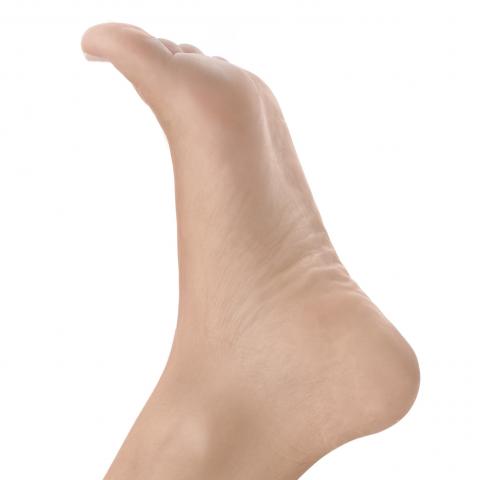
| Word | Meaning | Usage in Sentence |
| Head | Your “head” is above your shoulders. | The doctor scratched his head in thought. |
| Shoulder | Your “shoulder” is between your arm and neck. | Thomas injured his shoulder while skiing. |
| Arm | Your “arm” is a limb to which your hand is attached. | Cathy’s arm fell asleep in the middle of the night. |
| Hand | Your “hand” is attached to your arm. | Sara’s hand cramped from writing too much. |
| Finger | “Fingers” are appendages attached to your hand. | Jane cut one of her fingers while peeling an apple. |
| Leg | Your “leg” is a limb to which your foot is attached. | After hurting his leg, Albert needed to walk using crutches. |
| Foot | Your “foot” is attached to your leg. | The shoe was too tight and hurt his foot. |
| Toe | “Toes” are appendages attached to your feet. | She stretched her toes after taking her shoes off. |
| Chest | Your “chest” is below your neck, and contains your heart. | She put her hand over her chest and felt her heart beating quickly. |
| Abdomen | The “abdomen” is the portion of the body containing the stomach and other digestive organs. | After the huge meal, Andy rubbed his abdomen in satisfaction. |
| Face | Your “face” is at the front of your head, and contains the following things. | She put her face in her hands in shame. |
| Eyes | Your “eyes” are below your forehead, and allow you to see. | Brian told his girlfriend she had pretty eyes. |
| Nose | Your “nose” is below your eyes, and allows you to smell things. | The scent of dinner cooking reached her nose and made her happy. |
| Mouth | Your “mouth” is below your nose, and allows you to ingest food. | Xavier got hit in the mouth with a football. |
| Ear | The “ears” are on the sides of your head, and allow you to hear things. | After listening to the loud music, she heard ringing in her ears. |
9-Time
Alarm clocks, meetings, flight schedules, and store closing times are all examples of when time vies for your attention. This is a topic with many layers, but I’ve done my best to outline the most important time-related nouns in English for you below!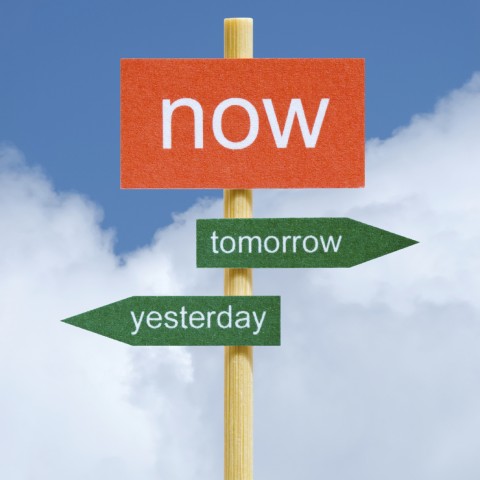
| Word | Meaning | Usage in Sentence | Additional Notes |
| Today | “Today” refers to the current day. | I’m looking forward to eating dinner later today. | |
| Yesterday | “Yesterday” refers to the previous day (the day before today). | I was able to sleep in and relax yesterday. | |
| Tomorrow | “Tomorrow” refers to the next day (the day after today). | Hopefully the weather is still nice and sunny tomorrow. | |
| Day | A “day” refers to a period of twenty-four hours. | This is a pleasant day. | |
| Week | A “week” refers to a seven-day period. | Brandy had to skip school all week because she was sick. | Week is not to be confused with the word “weak,” which means to lack strength. |
| Month | A “month” refers to one-twelfth of a year, consisting of about four weeks or thirty days each. | August is Jennifer’s favorite month. | |
| Year | A “year” refers to twelve months, or the time it takes for the earth to revolve around the sun. | Wendel will be moving away next year. | |
| Hour | An “hour” consists of sixty minutes, and there are twenty-four hours in one day. | Lucy couldn’t wait until the hour was over so she could leave work and go home. | |
| Minute | A “minute” consists of sixty seconds. | He didn’t think he could stand another minute of her lecturing. | Minutes are also used in telling time, along with hours. For example, when someone says that it’s 8:48 am, the “48” means 48 minutes after 8 o’clock. |
| Second | A “second” is a short period of time, sixty of which make up one minute. | One second she was happy, and the next she was crying; what did he do wrong? | Second here is not to be confused with the adjective “second,” which refers to being after the first of something. |
| Calendar | A “calendar” shows the months of a given year, as well as the days in that month. It can be either in tangible paper form and hung on a wall, or an app on a phone or computer. Calendars are used to track what day it is, upcoming dates and holidays, and to help schedule events/appointments. | After checking her calendar, Nel had to cancel her date for next week. | |
| Date | A “date” refers to a specific day, usually consisting of the month, day, and year. | “What’s today’s date?” Joe asked. | Date here is not to be confused with the word’s other two meanings. One meaning is a date, like a romantic time out with someone (as it’s used in the “calendar” example sentence). The other meaning is a type of fruit. |
Days of the Week
Learning about nouns in English language isn’t really complete until you know the days of the week, too!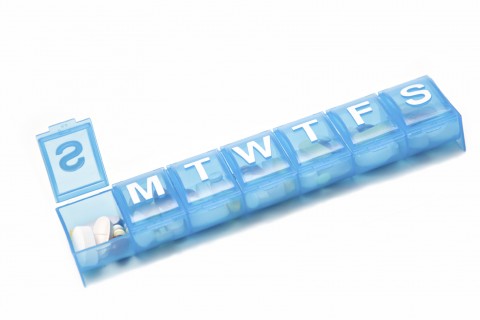
| Word | Meaning | Usage in Sentence |
| Sunday | “Sunday” is the first day of the week, and is the second day of the weekend. | Po went to church on Sunday. |
| Monday | “Monday” is the second day of the week, but the first day of the work week. | Raina didn’t look forward to work on Monday. |
| Tuesday | “Tuesday” is the third day of the week, and the second day of the work week. | Abby looked forward to lunch with her boyfriend on Tuesday. |
| Wednesday | “Wednesday” is the fourth day of the week, and the third day of the work week. | Sil skipped school on Wednesday. |
| Thursday | “Thursday” is the fifth day of the week, and the fourth day of the work week. | “What should I bring to the potluck on Thursday?” she asked. |
| Friday | “Friday” is the sixth day of the week, as well as the fifth and final day of the work week. | Zora worked the late shift at work on Friday night. |
| Saturday | “Saturday” is the seventh day of the week, and the beginning of the weekend. | Fay looked forward to sleeping in on Saturday. |
3. Conclusion: Master Nouns in English & Much More with EnglishClass101!

I hope you enjoyed this English nouns lesson and learned some valuable information about the most common nouns in English with EnglishClass101.com! What did you learn about English nouns? Are there any English nouns you still want to learn about? Let us know in the comments! We always look forward to hearing from you!
Learning about nouns in English language studies can be difficult, but know that with enough practice you’ll get the hang of it!
To continue learning English, explore EnglishClass101.com and take advantage of our fun, practical learning tools! There you can read more insightful blog posts like this one, study free English vocabulary lists, and chat with fellow English learners on our community forums!
With a Premium Plus account, you can also take advantage of our MyTeacher program, and learn English one-on-one with your own teacher and personalized learning plan!
At EnglishClass101, we have learning and study tools for every student’s success. Combine that with your hard work and determination, and you’re sure to master English! You’ll be speaking, reading, and writing English like a natural before you know it!










